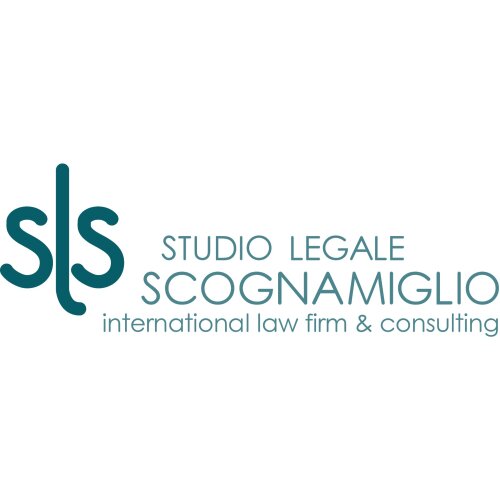Best Employment & Labor Lawyers in Naples
Share your needs with us, get contacted by law firms.
Free. Takes 2 min.
List of the best lawyers in Naples, Italy
Italy Employment & Labor Legal Questions answered by Lawyers
Browse our 1 legal question about Employment & Labor in Italy and read the lawyer answers, or ask your own questions for free.
- I am being repeatedly bullied by a colleague at work
- I am being repeatedly bullied by a colleague at work and despite numerous attempts to get help from my supervisors, nothing has been done. I have also been bullied by my supervisors (lying to me - giving preferential treatment to others - giving me more work - not helped when... Read more →
-
Lawyer answer by Studio legale DSC
The repeated bullying you've experienced is a serious matter.Given the impact on your well-being and your supervisors' involvement, consider consulting an employment lawyer to discuss potential compensation claims like hostile work environment or retaliation.
Read full answer
About Employment & Labor Law in Naples, Italy
Employment and labor law in Naples, Italy, is governed by a combination of national and regional regulations designed to protect the rights of both employees and employers. The Italian legal system ensures comprehensive guidelines on employment matters, covering contracts, wages, working conditions, employee benefits, terminations, and dispute resolutions. In Naples, as part of the broader Campania region, these laws are influenced by local economic conditions and cultural factors, making it essential to seek an understanding specific to the area.
Why You May Need a Lawyer
Seeking legal advice in the field of employment and labor can be crucial in several situations. Employees may require legal assistance when dealing with issues like wrongful termination, discrimination, wage disputes, harassment, or contractual disagreements. Employers might need guidance on compliance with labor laws, drafting employment contracts, handling redundancy procedures, or resolving workplace disputes. Consulting with a lawyer ensures that rights are protected and that both parties comply with the complex legal frameworks.
Local Laws Overview
Key aspects of employment and labor laws relevant to Naples include mandatory employment contracts, statutory minimum wages, non-discriminatory workplace policies, and stringent health and safety measures. Italian law mandates that employment contracts be clearly articulated and in writing, while legislation also protects against unfair dismissals. Employers are required to comply with occupational health and safety standards, and failure to do so can lead to substantial penalties. Additionally, employees in Naples enjoy several rights concerning working hours, leave entitlements, and social security contributions.
Frequently Asked Questions
What must an employment contract include?
An employment contract in Italy must include essential elements such as job description, salary, working hours, and duration if it's a fixed-term contract. It must comply with statutory and collective bargaining agreements.
How are disputes between employees and employers resolved?
Disputes can be resolved through negotiation, mediation, arbitral procedures, or legal proceedings through labor courts. It is advisable to seek legal counsel to explore the most effective resolution method.
Are there regulations regarding working hours and overtime?
Yes, the legal working hours in Italy cannot exceed 40 hours per week. Overtime must be compensated, usually at a higher rate or through time off in lieu, as stipulated in national and local agreements.
What are the grounds for lawful dismissal?
Lawful dismissal can occur for just cause, such as employee misconduct, or justified reasons, including economic or organizational changes. Employers must follow legal procedures for dismissals to be valid.
Can an employee claim compensation for workplace discrimination?
Yes, employees who experience discrimination can file a complaint with the labor court and seek compensation. Discrimination based on gender, race, religion, or age is prohibited under Italian law.
What are the common types of leave entitlements?
Employees in Italy are entitled to various leaves, including annual leave, sick leave, maternity/paternity leave, and parental leave. Specific entitlements and durations are defined by law and collective agreements.
How does collective bargaining operate in Naples?
Collective bargaining in Naples is conducted through agreements between employers and trade unions, covering aspects like wages, working conditions, and benefits. These agreements are pivotal in shaping labor relations.
What role do trade unions play in employment and labor issues?
Trade unions advocate for employees' rights, negotiate collective agreements, and can represent workers in disputes with employers. Joining a union can provide employees with significant support.
How can a business ensure compliance with local labor laws?
Employers should stay updated on legal mandates, conduct regular audits, and seek legal advice to ensure compliance with labor laws and regulations, thus avoiding potential litigation and penalties.
Are there special labor laws for foreign workers in Naples?
Yes, foreign workers must possess valid work permits and are entitled to the same rights and protections as local employees. Employers must ensure compliance with immigration laws and employment regulations.
Additional Resources
For more information or assistance, individuals can contact organizations such as the Italian Ministry of Labor and Social Policies, the National Institute for Social Security (INPS), local labor unions, or employment law firms in Naples. These institutions provide valuable guidance and resources on employment-related matters.
Next Steps
If you need legal assistance in employment and labor matters in Naples, consider contacting a qualified local lawyer specializing in this area. Prepare all necessary documentation related to your issue and schedule a consultation to explore your options. It is important to act promptly to ensure your rights are protected and to participate fully in any process related to your employment situation.
Lawzana helps you find the best lawyers and law firms in Naples through a curated and pre-screened list of qualified legal professionals. Our platform offers rankings and detailed profiles of attorneys and law firms, allowing you to compare based on practice areas, including Employment & Labor, experience, and client feedback.
Each profile includes a description of the firm's areas of practice, client reviews, team members and partners, year of establishment, spoken languages, office locations, contact information, social media presence, and any published articles or resources. Most firms on our platform speak English and are experienced in both local and international legal matters.
Get a quote from top-rated law firms in Naples, Italy — quickly, securely, and without unnecessary hassle.
Disclaimer:
The information provided on this page is for general informational purposes only and does not constitute legal advice. While we strive to ensure the accuracy and relevance of the content, legal information may change over time, and interpretations of the law can vary. You should always consult with a qualified legal professional for advice specific to your situation.
We disclaim all liability for actions taken or not taken based on the content of this page. If you believe any information is incorrect or outdated, please contact us, and we will review and update it where appropriate.
Browse employment & labor law firms by service in Naples, Italy
Naples, Italy Attorneys in related practice areas.










